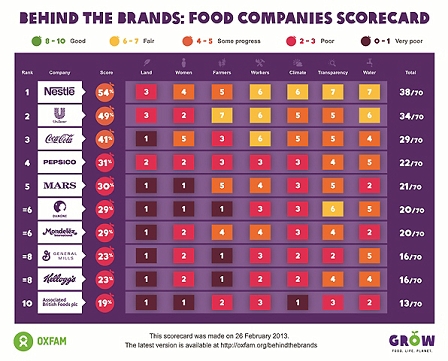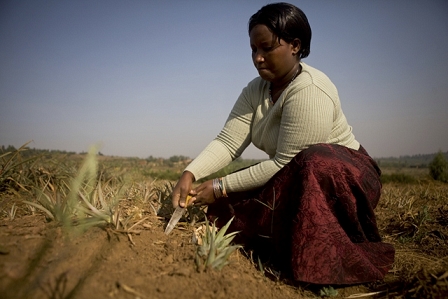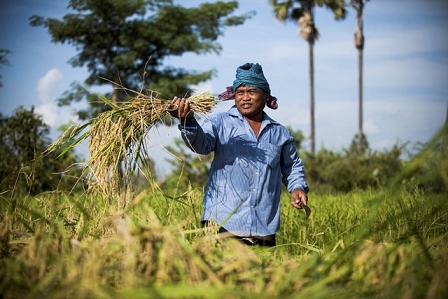Erstellt am: 27. 2. 2013 - 12:11 Uhr
Horsemeat Is A Side Show
The horsemeat scandal has rocked Europe and beyond in recent weeks. For many people the mere idea of horsemeat (or in South Africa's case water-buffalo and donkey meat) being eaten is unconscionable and repellent, and others are worried that the veterinary painkiller bute may have entered the food chain.
For me, however, the shocking aspect of the scandal has been the light it has shed on the global food trade, with its complicated and inscrutable supply chains, its lack of oversight and its apparent profit-at-all-cost philosophy.

Oxfam
A handful of massive companies, the so-called "Big Ten", control the vast majority of the global food and drinks trade - companies like Nestlé, Danone and Coca-Cola. A new report from the charity Oxfam accuses them all "without exception" of complicity in wage exploitation. It also suggests that the companies tolerate both sexual inequity and environmental destruction. The report paints a picture of an industry making billions on the backs of farmers who are not paid a living wage, whose land-rights are not protected and whose voices are not heard.
But above all the charity paints a picture of a business that is not being honest with its consumers.
“They are not showing us how they are doing their business, they are not telling us where they get their ingredients from, who they get their ingredients from,” Oxfam's food policy advisor Enrich Sahan told me. “And at a time when public confidence in the food industry is at rock bottom, partly because of the horsemeat scandal, we are calling for more transparency.”

oxfam
So if the scandal has a silver lining it might be a renewed willingness for consumers to look at the way our food is produced. To help us, Oxfam has created a “Behind the Brands” score card based on an 18 month investigation into the multi-billion industry. They awarded points for the way that the companies treated local producers, communities and environments. “None of the big ten are doing enough across the board. The highest score we were able to give was 54% which is barely a passing grade. It's simply not enough considering the great power these companies wield.”
Sahan says the unfairness of the system is encapsulated by the fact that these ten massive companies make more than one billion dollars in revenue per day while one in eight people go to bed hungry every night. “We feel that a lot needs to be done to make sure that those who are growing the food and growing the ingredients for some of the world's biggest brands are getting their fair share of the income.”
Too often when land-grabs and exploitative working conditions are unearthed by NGOs or investigative journalists, the companies plead ignorance of the actions of their sub-contractors. “There isn't enough inquisition into the subject by the higher-ups,” says Sahan. Oxfam complains about an apparent “veil of secrecy”. The big companies buy from countries where land-grabs are taking place and where land rights are not respected but they don't use any influence to make sure that the vulnerable are protected.

oxfam
Oxfam is calling on Europeans to use social media to back their call for reform. “As consumers we are very powerful,” says Sahan, “These companies exist because of us consuming their products. If we tell the companies that we care about these issues there is a great chance that they will change their behaviour soon.”
For more on this subject: check out Chris Cummins's trip to some fair trade coffee farms in Nicaragua
I admire Sahan's optimism. It seems to me that for decades we have told food companies that we want pre-packaged, poorly produced food in large quantities at an ever lower price. What we have been left with, according to Jeremy Hobbs, the Executive Director for Oxfam International is a "100-year legacy of relying on cheap land and labor to make mass products at huge profits, with unacceptably high social and environmental costs."
So the companies have got rich, while we have got fat, the developing world's farmers have stayed poor and the countryside has been raped.
Perhaps the horsemeat scandal is a good excuse to press the restart button?
Reality Check Interview with Oxfam`s Enrich Sahan:
Dieses Element ist nicht mehr verfügbar


